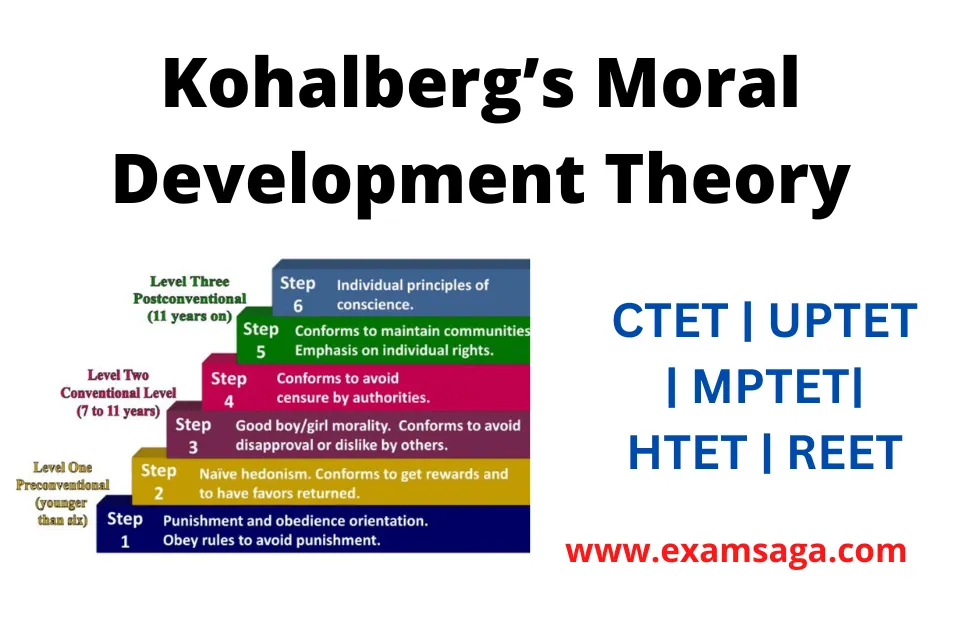Here we provide all the concepts and essential points of Kohalberg’s Moral Development Theory For CTET and other teaching exams.
Kohalberg’s Moral Development Theory
Kohlberg refined the theory of Piaget and made his theory. Kohlberg studied a story which is as follows:
In Europe there lived a man named Hinz, his wife used to fall very sick. The medicines needed to cure her are available on only one shop and so the shopkeeper was charging him of his own free will. (e.g. Asking for Rs. 200/- for a medicine of Rs 5/-). Hinz was very poor and could not afford to pay so much, so he steals the medicine at night and saves his wife’s life. Now Kohlberg thinks that according to Piaget neither did Hinz want to steal nor was it taught by his culture/background. But Piaget in his definition of moral development states that morality is a product of our own inclination or based on our cultural background. When Kohlberg thinks about Hinz he realizes that Hinz stole because of his circumstances. Kohlberg came to the conclusion that has two important points:
- Moral dilemma
- Moral Reasoning
Moral Dilemma: Moral Dilemma refers to such a state wherein we happen to have been struggling between Right and Wrong, rather than what is Right or Wrong.
Example: when Hinz could not provide money for his wife’s medicine, he was facing a moral dilemma – If he steals he will be arrested by the Police and if he doesn’t his wife will die.
Moral Reasoning: Moral Reasoning refers to determining the Moral Process of whether any action is Right or Wrong.
Kohlberg has divided Morality into three stages:
- Pre-conventional stage (4-10 years)
- Conventional Moral stage (10-13 years)
- Post-conventional stage (Above 13 years)
Pre-conventional stage
A)Obedience & Punishment Orientation –
Obedience is based on the fear of punishment. Children are not aware of the true value of morality. In this stage, the child lacks morality. In this stage, the child believes that elders or parents in the society give a set of rules to a certain set of values. According to the child, he must follow these rules. If he does not follow it, he will be punished.
B)Individualism and exchange/ personal Reward Orientation–
In this stage, the child starts behaving like tit for tat. Example: If a child is told that if you scratch my back then I will scratch yours, he agrees to it. He believes that it is the way the person is dealing with him. At this stage, the moral thinking of children is based on egocentrism.
Conventional Moral stage
A) Good Boy and Good Girl
At this stage, good behaviour is associated with other’s happiness and is accepted by others. The child wants to gain accomplishment from others in this. Due to showing good in the eyes of others, another name for this stage is also inter-personal; In interpersonal relationships, we think of others.
B)Maintaining the Social Order (Law & order)
At this stage, the child believes that whatever laws are made in the society, it is for the good of the society. Children follow the law and order to maintain society. The child develops a feeling of respect for law and social decor.
Post-conventional stage
A)Social Contract & Individual Rights
In this stage, teenagers believe that rules are made for the good of the people, but if that rule hurts one’s personal values then these rules should be broken.
B)Universal Ethical Principles
At this stage, morality is driven towards the conscience of an individual. The stress is on the principles laid down by his own inner conscience rather than on the reaction of other people. The teenager, at this stage, works on his own inner values independently of the other’s thoughts/reactions or legal restrictions.
